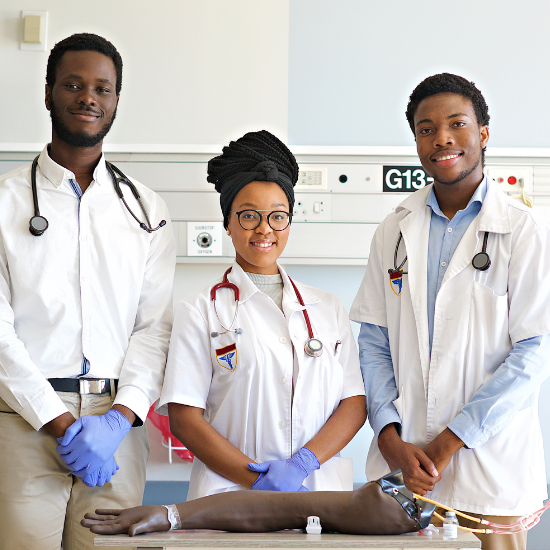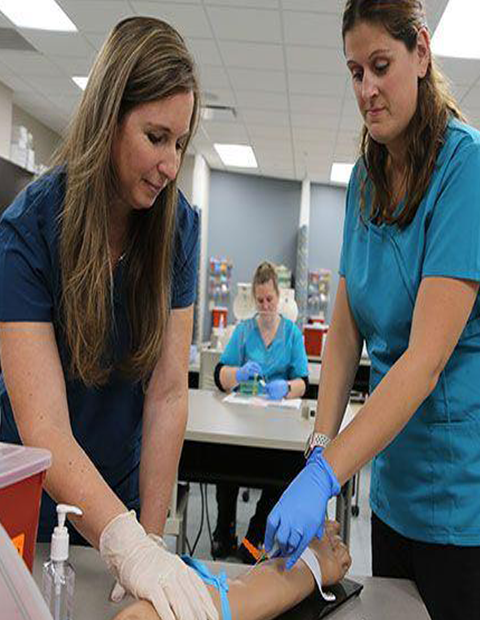Important Elements to Think About When Selecting one of the most Ideal Medical Institution Curriculum for You
Picking one of the most fitting clinical college curriculum is a critical choice that can significantly influence your academic trip and future profession path. As aspiring physician, the selection of curriculum should align with your personal learning design and profession desires. Nonetheless, past these initial factors to consider, various important aspects enter play when making this selection. By exploring the nuances of mentor methodologies, curriculum versatility, and scientific exposure possibilities, a much more thorough understanding of what makes an educational program ideal for you emerges. Let's explore these critical elements that can shape your clinical education and inevitably, your specialist trajectory.
Personal Understanding Design

Medical schools that provide diverse training methods and resources can suit different finding out designs, fostering a inclusive and vibrant instructional setting. Eventually, comprehending individual learning preferences equips students to make informed choices concerning their clinical education and learning, setting a strong foundation for their future occupations in medical care.
Profession Objectives Placement

Moreover, lining up career purposes with the clinical school curriculum can also improve motivation and interaction throughout the academic journey. When trainees see the straight importance of their coursework to their future career, they are more probable to stay specialized and concentrated to their researches. Consequently, when choosing a clinical college curriculum, it is crucial to carefully think about exactly how well it aligns with one's occupation goals to make sure an effective and satisfying expert path.
Mentor Techniques
Thinking about the placement of career purposes with the selected medical institution curriculum, an evaluation of the teaching methods used ends up being important in forming the discovering experience. The efficiency of a medical institution curriculum greatly relies upon the mentor methodologies made use of by the organization. Numerous teaching methods, such as talks, little seminar, problem-based understanding, simulation-based training, and hands-on professional experience, can significantly affect just how well important link pupils grasp and preserve information.
Simulation-based training permits students to practice scientific skills in a regulated environment prior to communicating with actual patients. Hands-on scientific experience supplies a direct understanding of patient treatment and medical methods.
When choosing a clinical school curriculum, striving trainees ought to take into consideration the training techniques used to ensure that their knowing preferences and staminas straighten with the educational strategy of the institution.
Educational Program Adaptability
When examining clinical institution programs, evaluating the extent of educational program adaptability is necessary for prospective trainees seeking a customized educational experience. Educational program flexibility describes the degree to which pupils can customize their discovering courses within the medical school curriculum. A curriculum that supplies adaptability enables students to seek their rate of interests, concentrate on areas where they need extra support, and participate in finding out experiences that straighten with their profession goals.

Potential clinical trainees should take into consideration exactly how a clinical college's curriculum versatility lines up with their knowing choices, job desires, and personal objectives. By selecting a program that offers the appropriate balance of structure and versatility, trainees can optimize their educational experience and prepare themselves for effective occupations in medicine.
Professional Exposure Opportunities
Discovering the practical application of clinical knowledge, scientific exposure chances play an essential role in forming an extensive medical education. These chances give pupils with vital hands-on experience in real healthcare setups, permitting them to link the space between concept and practice. When thinking about clinical school educational program, the quality and amount of professional exposure should be carefully examined.
Effective scientific exposure should offer a diverse variety of experiences throughout various specializeds, making certain that students are subjected to various clinical scenarios and individual demographics. Exposure to outpatient facilities, inpatient wards, medical theaters, and emergency situation divisions can aid find out pupils develop an all-around understanding of different aspects of health care shipment. Additionally, chances for community-based care and interactions with underserved populations can cultivate a deeper gratitude for the social factors of health.
In addition, the presence of helpful faculty and mentors during these clinical experiences can substantially enhance the discovering procedure. Faculty guidance and constructive responses can aid trainees assess their professional encounters, identify locations for enhancement, and enhance their decision-making capabilities and scientific skills (Northeast Medical Institute CNA Classes Near me Stamford). On the whole, durable medical direct exposure opportunities are important for preparing future medical professionals to my company provide quality client treatment efficiently
Final Thought
In final thought, when choosing a medical college curriculum, it is important to consider your individual learning style, alignment with occupation goals, showing methods, curriculum adaptability, and professional exposure opportunities. These factors play an essential role in determining one of the most suitable program for your expert and educational development. See to it to completely evaluate each element to make a notified decision that will certainly best sustain your growth in the medical area.
Comprehending one's individual knowing style is vital when picking a clinical institution educational program. By identifying one's finding out style early on, aiming clinical trainees can strategically select an educational program that provides to their toughness, inevitably enhancing their understanding experience and scholastic success.
When evaluating clinical college programs, analyzing the level of educational program flexibility is important for potential pupils seeking a tailored academic experience. Curriculum versatility refers to the degree to which students can personalize their knowing courses within the clinical college educational program.In final thought, when selecting a clinical institution curriculum, it is essential to consider your personal understanding design, placement with profession purposes, educating approaches, educational program versatility, and scientific exposure opportunities.
 Scott Baio Then & Now!
Scott Baio Then & Now! Marla Sokoloff Then & Now!
Marla Sokoloff Then & Now! Shannon Elizabeth Then & Now!
Shannon Elizabeth Then & Now! Rachael Leigh Cook Then & Now!
Rachael Leigh Cook Then & Now! Brooke Shields Then & Now!
Brooke Shields Then & Now!